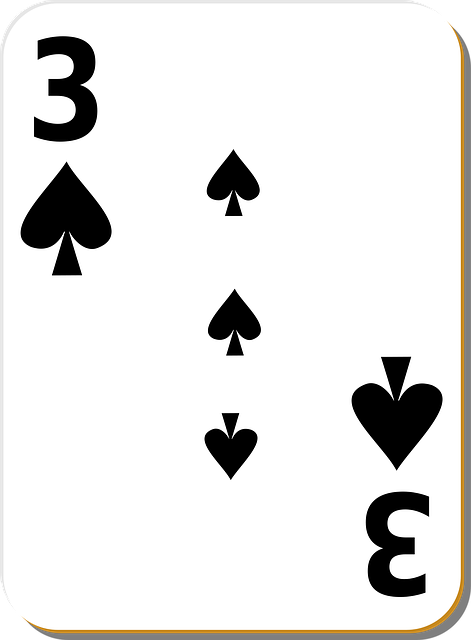Poker Online players often debate if games are rigged, driven by misconceptions and emotional biases. The truth is that reputable online poker platforms use Random Number Generators (RNGs) secured with advanced encryption to ensure fairness. Security breaches are rare, and skilled players can outperform through strategy, dispelling myths of manipulated outcomes. Factors like cognitive biases, anonymity, and emotional intensity contribute to the perception of rigged games, but understanding probability and platform security measures clarifies that online poker is a fair and secure gaming environment.
“Unveiling the Truth About Rigged Online Poker: A Comprehensive Guide
Online poker’s popularity has soared, but concerns about potential rigging have long plagued the digital gaming scene. This article delves into the complex world of online poker, addressing common perceptions and misconceptions about rigged games. We explore the technological aspects, investigating software, algorithms, and security measures that ensure fairness. Furthermore, we analyze player strategies, providing insights into responsible gameplay and identifying irregular patterns. By considering these factors, players can make informed decisions, fostering a transparent and trustworthy online poker environment.”
- The Perceived Rigging of Online Poker: Common Concerns and Misconceptions
- – Addressing popular myths and false beliefs about rigged online poker games.
- – Discussing the psychological factors that may contribute to players' suspicions.
The Perceived Rigging of Online Poker: Common Concerns and Misconceptions

Many players in the online poker world have expressed concerns about whether the games are rigged, fueling a debate that has sparked numerous discussions and debates. The perceived rigging of Poker Online often stems from instances where players feel they’ve been dealt unfair hands or experienced suspicious behavior from opponents. Random Number Generators (RNGs) are used to shuffle cards in digital poker platforms, ensuring an even playing field. However, some users remain skeptical, attributing their losses to potential manipulation.
Misconceptions about the game’s integrity often arise due to emotional biases and a lack of understanding of probability. Blames on “rigged” systems can be influenced by factors like bad beats, where players lose to seemingly unlikely hands. While it’s true that certain online poker platforms have faced security breaches in the past, these incidents are typically isolated cases. Reputable Poker Online operators invest heavily in ensuring fair play through advanced encryption and regular system checks, aiming to maintain a trustworthy gaming environment for all participants.
– Addressing popular myths and false beliefs about rigged online poker games.

Many players approach online poker with a sense of trepidation, often fueled by myths and false beliefs that the games are rigged against them. One common misconception is that random number generators (RNGs) used in online poker platforms can be manipulated to favor certain players or create unfair advantages. While it’s true that technical glitches or software vulnerabilities might exist, reputable poker sites invest heavily in ensuring their RNGs are secure and fair. These platforms employ robust security measures to protect against any potential manipulation.
Another popular myth suggests that skilled players are at a disadvantage due to the “house edge.” However, this edge is calculated based on statistical probabilities and does not mean every game is rigged to favor the house. In fact, many online poker rooms offer various game types with different rules and pot odds, empowering players to choose environments that best suit their skills. With the right strategies and a bit of luck, skilled players can consistently outperform even in the most competitive environments, dispelling any notion of rigged games.
– Discussing the psychological factors that may contribute to players' suspicions.

Many online poker players often question if the games are rigged due to a combination of psychological factors and the unique nature of digital platforms. The human mind is prone to cognitive biases, and when faced with repeated losses or seemingly unfair outcomes, it’s natural for players to seek an external explanation. This is especially true in the fast-paced and competitive world of online poker, where every decision can significantly impact a player’s bankroll. Suspicions may arise from small variations in card shuffling algorithms or even perceived patterns in opponents’ behaviors, leading some to believe that the system is stacked against them.
These perceptions are often fueled by the emotional intensity of playing poker online. The lack of physical presence and face-to-face interaction can make it harder to identify tells and patterns, leading players to fill in these gaps with assumptions. Additionally, the anonymity of online gaming allows for a diverse range of players from different skill levels to coexist, which can create an impression of unpredictability or unfairness when one’s results deviate significantly from expected outcomes.
While some players voice concerns about the potential rigging of online poker, it’s essential to remember that reputable poker sites employ robust security measures and random number generators to ensure fair play. Psychological factors, such as the law of large numbers and confirmation bias, can sometimes lead to perceived patterns or biases. Instead of assuming foul play, consider exploring these factors and verifying the integrity of your chosen online poker platform. By doing so, you can enjoy a thrilling and competitive experience without worrying about rigged games.






